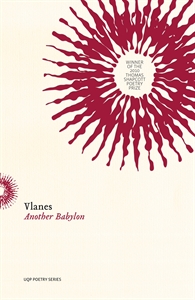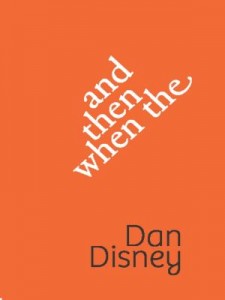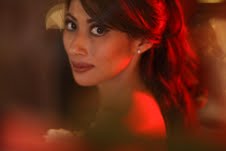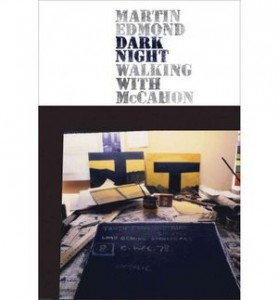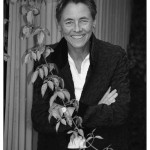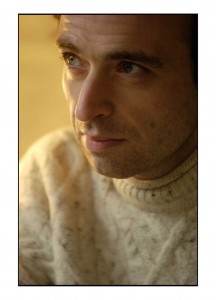Jena Woodhouse
The Agency of Water
Stalking the Light
Her eyes open like clockwork. Five a.m. She swings her legs over the side of the bed, eyeing the uncurtained window. The water is already visible, reflecting the light from the sky.
Groping her way into tracksuit and joggers, she snatches up her camera and heads for the door, opening it quietly so as not to wake the children. Alert and expectant, her dog moves his rear from side to side in lieu of a phantom tail, but she never takes him on these morning forays. He would distract and slow her down.
She rushes past the houses between her own and the open stretch of river bank as if in hot pursuit of something, as in fact she is. If she misses the special effects of early-morning light on the river, her day will lack a meaningful beginning, and she will have to wait until tomorrow for another opportunity. By sunrise it’s already too late.
Hugging the river path like a stalker, she pauses at strategic points where there are spaces between the eucalypts on the bank or windows in the dense mangrove foliage below it, to focus her camera on the light refracted through clouds onto the water’s surface then back again like a mirror through vapour, as if she could capture the radiance inside the small box housing the lens. Her gaze searches the clouds and the water, tracking gaps and interstices, registering changes. These days she is always on the lookout for chinks and apertures, avenues for imagination to pursue, escape routes.
One year ago… No, it is to forget about one year ago that she is here, now, in the impressions of the moment, with the solitary canoeist whose craft draws a long chevron on the rose-tinted surface of the water below; with the cohort of ibis silhouetted against the forget-me-not blue unveiled by dispersing clouds above; with the kingfishers and herons and magpies who frequent the early-morning river bank: here, now, in the strengthening light.
An hour later, the show is over. The sun has risen, soft shadows have fled like a flock of rose and grey galahs, and she has returned to her rented house, to the rented kitchen, to hear her own voice grating on silence: ‘Hey, you lot! Get up! You’ll be late for school.’ Just as it had one year ago, two. Before she fled a hostile husband, security (or at least its semblance), and many other things she has since learned to live without.
Now she feels rich when she manages to catch the first light and carry home fleeting images of clouds, wings, waterbirds watching the sun inundate the river with its running fire; rays glancing off spider webs; tiny glazed beads, seed on grass heads; weeds unfurling delicate flowers only she seems to notice; the minute detail of dead and living trees: boundless gifts revealed to her by first, fresh, pristine light.
In the house she has leased near the river her photographs occupy every wall: nuanced images captured on film in her dawn sorties. Her former house, hemmed in by leafy suburban avenues, was equally crowded with reproductions of French Impressionist paintings. Living there, she’d had no inkling of what the future held, no awareness of the river meandering only a short walk away. Nor did she rise so early.
Now, with the sinuous ribbon of water gliding past the bottom of her garden, mornings are the magic in her day. Other people who exercise along this reach never carry cameras, never seem to pause, to stand and gaze more intently. It seems to be her private discovery.
Twenty years ago she was… No, don’t go there.
Get up at five a.m. without an alarm – her body knows, and responds along with the plants and all living creatures to the shift in energies triggered by the transition from darkness to light, from nycthemeral rhythms to circadian ones.
Another morning, another revelation. The same river, but always different. And oh look! Hot-air balloons, rising like a vision from another world, somewhere beyond the mysterious mangroves fringing the opposite bank — ascending effortlessly, soundlessly, not brightly coloured, but in muted shades of grey. And below them, her fellow traveller of the morning, the lone canoe and its occupant. Feverishly she records them before they move out of frame — the balloons, the river, the canoeist, the light’s mounting intensity. It is the most satisfying concatenation of images in a year of mornings.
She has a strange, disquieting premonition that even these pleasures might be taken from her soon. Without knowing that the next day her son will drop and break her camera. Without knowing that her capricious landlord is about to play one of his habitual power games and not renew her lease.
Meanwhile, here, now, the morning infuses her with its subtle wonder, so that as she turns homeward, she feels as if the renewed energy inside her is turning into light, as energy does when a new star forms. She feels as if she is floating above the treetops, powered invisibly yet palpably by helium, which is also converting into inner light; looking down on the river as it wells with gold; looking east to the lava flow on the horizon; looking up at the innocent blue vault of the expanding sky, before glancing briefly, just once, back at herself in her former life, which appears so small, so diminished by distance, that it is barely discernible.
Cara
I was running late for the concert, driving recklessly through early spring rain then running helter-skelter from Hope Streetto the concert hall just as the doors were closing. I’d been looking forward to this performance of the Vaughan Williams Symphony No. 1, ‘A Sea Symphony’. Thankfully I already had my ticket, purchased a week before. A disapproving, ageing usherette admitted me. Grudgingly. I wondered why the young man I had to pass to reach my seat did not retract his feet for me to pass, until the young woman beside him murmured: ‘Mind the dog.’
A blackLabradorlay at the feet of another young man in the seat next to mine. Both youths were elegantly attired in well-cut clothes – Italian tailoring which perfectly complemented their classical features and dark good looks. Involuntarily I was reminded of sculpture – the beautiful ephebe beloved ofGreeceandRome. Between the two youths sat two girls of similar age. The one who had warned me about the dog appeared to have no visual impairment. The other was so finely boned, so fair, so delicate that it seemed possible she would wither under strong light. She, too, was dressed in an elegantly tailored jacket and trousers, with a fine gold chain on the wrist clasped by the young man sitting nearest to me. She was wearing thick-lensed, tinted glasses.
Throughout the Schumann concerto on the first part of the programme, I found my mental attention divided between the musicians and the young concert-goers in the adjacent seats, listening intently with a composure and unselfconscious vulnerability that differentiated them from other members of the audience, experiencing the music from a place apart from any which I could either imagine or enter.
During the intermission, the usherette distributed left-over programmes to those in the front rows. She handed a small booklet with news of forthcoming events to the girl wearing tinted lenses, who turned it this way and that in her hands, registering it as an object without attempting to read it. The young man next to her commented on the odour of wet dog. I asked the dog’s name. ‘Cara’, he said. ‘That means ‘black’ in Turkish,’ I said, proffering one of those random items of information one garners in the course of one’s travels.
He leaned towards the other young man and relayed this information. They both seemed amused and said, almost in the same breath: ‘It suits her. She’s a black dog.’ Then the one sitting next to me added: ‘But in Italian, her name means ‘dear’.’ I asked his permission to pat Cara. ‘It’s okay, she’s off duty now,’ he said.
Cara responded affectionately to my touch, but I was wishing that all the people from the opposite end of the row would not insist on exiting from our end and returning past us, stepping over Cara, who looked slightly uneasy but sat quietly. I was already feeling protective towards her and her charges, the young man next to me holding the dog’s harness and his ethereal-looking companion, who inclined their torsos close to each other, cocooned in the same aura.
I thought of sculpture in the rain, marble streaked with centuries of spring showers, human forms of great beauty and purity, eloquent in their sightlessness, sequestered in some forgotten Mediterranean courtyard wreathed in wind-tossed jasmine. In that rain-rinsed garden one could perhaps catch a glimpse of the Bird of Innocence – a shy, legendary creature in flight from the shop-soiled world, whose song was only for the pellucid of spirit.
The second half of the programme commenced: ‘A Sea Symphony’. The chorale delivered Whitman’s lyrics. All around us surged the tide, augmented by the gale and tempest unleashed by the orchestra. Grandeur and majesty. Intonations of an age that still believed in certainties. Beneath the surface textures of sound, the voices and frequencies and energies of symphony. Stealing a glance at the faces of the young couple nearest me, he dark-haired, dark-eyed, aristocratic, Italianate; she so delicately fair, I saw they were enraptured, transported into a dimension evoked by the music. There were no visual cues to distract them as they listened with rapt concentration. Probably they were quite unaware of how they appeared to someone like me, to whom their world seemed perfect and complete.
At the end of the concert, with tempestuous waves of sound and emotion subsiding within the auditorium, the lights came on, Cara’s keeper snapped the hand-grip onto her harness, and she rose eagerly and began to strain towards the exit, wagging her tail in anticipation. ‘Let’s go!’ her body language said. ‘Let’s go home!’
Arm in arm, the lily-pale girl and her slender, dark-haired companion exited with Cara and their two friends. They were a family, a closed circle. I stayed in my place and watched them go, feeling bereft, lonely, wishing they might sense me there, wanting to farewell them as one does close friends, wanting to see them again. A voice in me was whispering ‘Take me with you, into that other world where you are going…’
What is it that sighted people miss, I have been wondering ever since. Certainly some qualities of sound, but how much more? If the power to restore their sight were granted, Cara’s family would see a different world from the one in which they have lived. And they would no doubt wonder at the kinds of blindness that sometimes afflict the sighted as well.
Dolphin
Why is Matilda, a girl not grown into her bones, never home for dinner these days? Flora can’t swallow her daughter’s story about a school project, but how else is she to account for Matilda’s absence? And since when did girls still in primary school come home from working on a project with paint on their lips and eyelids? How did Matilda come by such things? Flora knows that if she were to ask, she’d be served up a big fat lie. Matilda is concealing something from her mother. Flora is hiding something from herself.
Down at the docks, the flash of hair-ornaments and cut-glass earrings flag the spot where Matilda and her new friends wait near the shipping containers. Nervous giggles and muffled exchanges suddenly cease as a lighter approaches. A mooring rope lassos a bollard. Matilda’s companions push her forward. ‘Get in!’ the boatman tells her tersely.
They head out across the murky water to where the freighters are moored: unseaworthy hulks that nonetheless ply between east Asia and this Pacific archipelago, taking on timber, ore and tuna. The incidental catch of smaller fish, prized by the locals, can be had only in exchange for a ‘dolphin’, a pubescent girl. No dolphin, no fish: simple as that. The police turn a blind eye, claiming it would be impossible to catch the offenders in the act, as they would notice the launch approaching.
Tonight, Matilda is to be the dolphin. Her friends have groomed her for the event, told her what to expect. ‘They give you fizzy drink, you feel good. After, you wake up, go home. Boatman gives you pocket-money, nice clothes, earrings.’
Matilda can sense the air of importance this secret thing has conferred on her friends, but she feels only spasms of foreboding in her belly as the lighter approaches the ship’s black bulk. Above, men’s voices are speaking a language she can’t understand. ‘I want to go home!’ a small, childish voice blurts out. Was it her own?
The boatman ignores her, then jerks his head towards a rope ladder dangling within reach. ‘Go!’ he says. Matilda is trembling so violently that she doesn’t think she’ll be able to grasp the rope with her hands, or steady her knees. ‘I want to go home,’ wails a voice in her head, but this time she doesn’t say it aloud.
It is after midnight when the lighter returns to port. A small, dishevelled figure is huddled aft, surrounded by baskets of fish, their eyes gaping starwards. Nauseous, Matilda retches over the side as they approach the mooring. Where are her friends now? The boatman bundles her roughly ashore. ‘Go home,’ he mutters, half to himself, thrusting a few coins into her hand. Her skirt feels sticky. She touches it with the fingers of her other hand, then holds them up to the dingy light. Blood.
A woman steps from the shadows, but Matilda is too dazed to notice. Her knees buckle. She wants to lie down. Weep. Sleep.
‘Matilda!’ says a peremptory voice. An arm slips under her shoulders, across her back, supporting her. She leans against the cotton print smock that smells of laundry soap and they set off, slowly, heavily, for home.
Her mother gives her a little shake, rough but not threatening. ‘Wake up!’ she says. ‘Wake up, child, before it’s too late!’
There is no response from Matilda.
‘Is this how you want to live?’ Flora demands.
In the indigo dusk, Flora senses an almost imperceptible movement at her breast as her daughter weakly shakes her head.
Death by Water
There is a dream I have which comes in many forms. Its common element is water, not in the guise of lifegiver but as marauding force, a tide that rises swiftly and inexorably, engulfing human artefacts and structures. I live in a city built along a water artery whose river sometimes floods, although floodwaters have never threatened me. However, the dream may be a subliminal effect of the river’s presence: its magnetic currents coursing past my house and travelling unimpeded through my sleep, relaying messages.
The morning after experiencing another version of this dream, I learn that a boy from the international college where I teach has drowned. He was thrown into the river late the previous evening, during a thunderstorm, by several classmates. All the boys are from Asian countries. They have been playing this dangerous game night after night for several weeks. None of them are confident swimmers, but this boy could not swim at all. The culprits, his former classmates, insist that he was laughing when they threw him in; that when he failed to surface, they dived in to search for him, but the current snatched him out of their hands. Police divers are searching for him. What is the psychological truth beneath the surface of these events?
In the afternoon of the following day the drowned boy is found near the ferry pontoon. His shoelace was caught on a submerged shopping trolley, so there had been no hope of his floating free in time to save himself. His classmates will eventually stand trial for manslaughter. His parents will be childless from now on.
That night it rains again, and at the deserted, brightly illumined college a couple of figures shelter, silhouetted at the top of the steps in the lights from the foyer, waiting for the rain to ease before making their way home.
As I drive through the gentle, persistent rain I think of strangers all over the city, separated from one another by crystal chains of water droplets, and of the drowned boy, lying now in shrouds of dry, cold darkness, as his parents fly above the clouds from another land to reclaim their son.
I think of the people in high white hospital beds, lying in brightly-lit wards, lonely for their homes and their families, wistfully waiting for health to return, aware or unaware of the rain that brings some closer and separates others.
I think of the time I was thrown into a deep waterhole by classmates who derided my ineptitude at all games requiring physical prowess. I remember how they rolled on the bank, laughing uproariously as I surfaced gasping and choking, and sank, several times. (Did the drowned boy’s friends laugh when he panicked?) To that experience I owe my terror of water when out of my depth. Although I can swim, panic rises in me as soon as my feet can no longer touch bottom. The thought of the drowned boy’s ordeal fills me with personal, palpable horror.
I also remember Synge’s play, Riders to the Sea, the drowned Aran fishermen who seemed to live under the curse of some cruel pelagic law of sacrifice: the almost ritualistic nature of their deaths, and the lives of their mothers, sisters, children and wives stretched on the tenterhooks of perpetual mourning.
And as it rains from sombre skies for a third night, it is as if some metaphysical klepsydra of sorrow is being replenished, as part of a cycle of catharsis only dimly sensed, when we brush up against it in the darkness from time to time.

